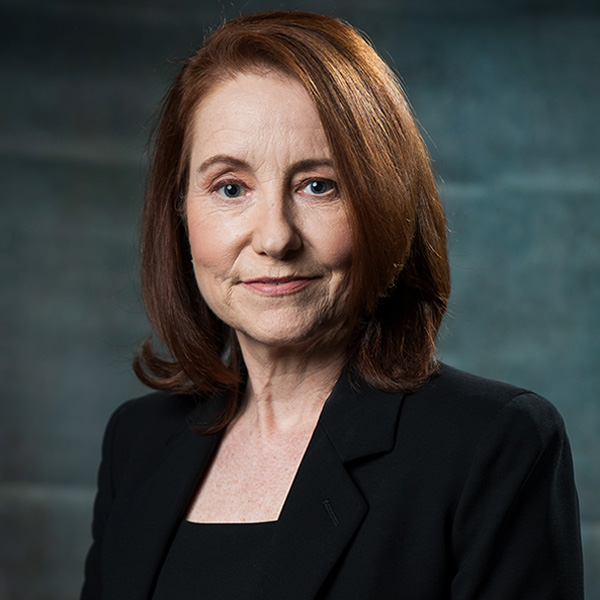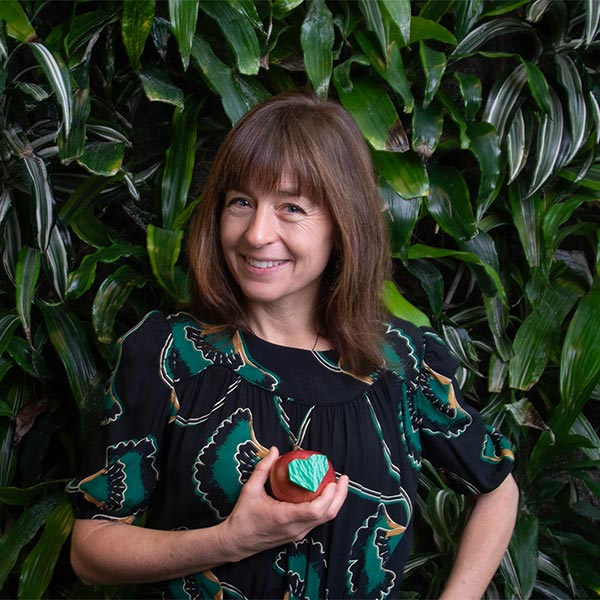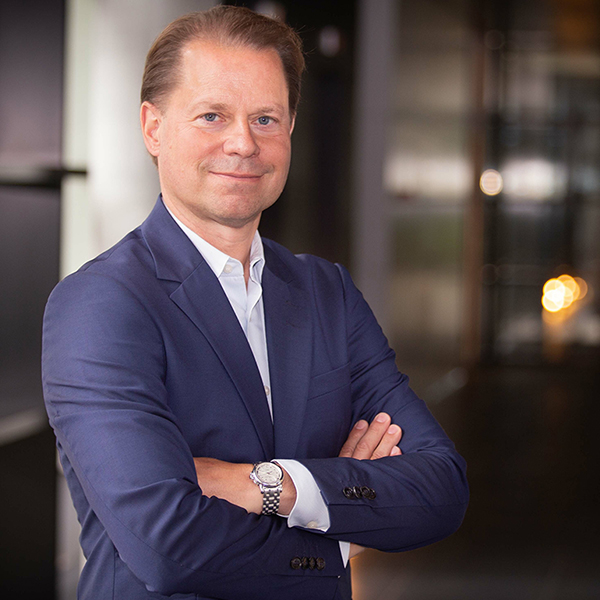In a speech she gave in May at a graduation ceremony for the University of Virginia’s Frank Batten School of Leadership and Public Policy, Adriana Kugler, BA’91, informed the school’s newest alumni that their careers might zig and zag in surprising ways – and they should be prepared to welcome the unexpected.
“Keep a lookout for opportunities and consider saying yes even if doing so might move you off your planned path for a time,” she instructed.
Kugler might have had herself in mind when she offered that advice.
An award-winning labour economist, she is a full professor at Georgetown University’s McCourt School of Public Policy, where she has taught since 2010. Her academic career has experienced a few interruptions, though, and the decision-makers in the White House are chiefly to blame.
In 2011, when Barack Obama was president, Kugler was appointed chief economist for the U.S. Department of Labor, where she helped craft policies and proposals that dealt with a range of issues, including unemployment insurance, training programs, retirement benefits, and occupational safety.
She returned to Georgetown in 2013 and became the university’s vice provost for faculty – but the White House came calling again.
In 2021, U.S president Joe Biden nominated Kugler for the position of U.S. executive director of the World Bank, a job she began the following year. While there, she received the Chase Award from the U.S. Treasury Department for her work with multilateral development banks, which play an important role in supporting social and economic development around the world.
The Biden administration tapped her for another big job last year, and she now serves as a governor for the U.S. Federal Reserve, the country’s central bank. The Reserve is responsible for promoting the stability of the U.S. financial system.
Kugler is one of the Federal Reserve’s seven governors (she is on leave from her faculty position at Georgetown) and the first Latina to serve in that role. Earlier this year, Barron’s named her to its list of the 100 Most Influential Women in U.S. Finance.
She recently responded to questions from the McGill News about her time at the University and what it’s been like to shift back and forth between studying economic policy and being one of the people who has helped shape it.
“I spent my childhood and early teenage years in Colombia where, in the early 1980s, I got to see firsthand double-digit inflation and the dire consequences of inflation for the most disadvantaged.”
Adriana Kugler, governor of the U.S. Federal Reserve
Having held positions at the Federal Reserve Board and the World Bank, what are some of the accomplishments you value most?
At the World Bank, I am proud of the work we did on addressing food insecurity, providing short-term access to food and building up capacity to address long-term food production. I am also proud of the important work providing budget support to Ukraine through the World Bank expeditiously, but also with critical safeguards.
At the Federal Reserve Board of Governors, I have been working with my colleagues at continuing to fulfill our dual mandate of stable prices and maximum employment. We have been making progress at continuing the disinflationary process together with a rebalancing of labor markets and low unemployment rates. Of course, many factors contribute to these trends, including monetary policy as well as fiscal policy and the continuous healing of supply side bottlenecks lingering from the COVID pandemic.
What motivated you to serve on the board?
I spent my childhood and early teenage years in Colombia where, in the early 1980s, I got to see firsthand double-digit inflation and the dire consequences of inflation for the most disadvantaged.
Later, I got to see how the actions and use of various tools of then-vice-chair and chair Janet Yellen helped the country and the world emerge out of the Global Financial Crisis and then help the country also tackle the Great Recession.
How did your experience at McGill help prepare you for your various roles?
I was lucky to pursue a joint honors program at McGill in economics and political science. I particularly remember my [macroeconomics] professor, Chris Ragan, who had just graduated from MIT and was teaching us state-of-the-art material based on recently published papers. I also remember the excellent econometrics class with just four students in which we were coding on old computers.
I was grateful to take classes in political science, which allowed me to understand not only high-level political theory concepts taught by Charles Taylor, but also comparative politics classes, which introduced me to different political systems and political realities around the world. I was lucky to be able to start doing research as an undergraduate working for Philip Oxhorn on the role of political movements in Latin America.
I believe that the strong training in economics and political science prepared me well for graduate school and then for my work as a professor and in public policy roles.
What are some of your memories of McGill and Montreal?
I have wonderful memories about McGill and Montreal. I had a great group of friends. In the summer, I was lucky to attend many jazz festivals and free concerts in the streets of Montreal with some of the greatest Latin jazz musicians, including Celia Cruz, Tito Puente and Chick Corea. I remember seeing Leonard Cohen strolling along Saint-Laurent Boulevard. In the winter, I loved going to the top of Mount Royal to go ice skating and going skiing at Mont Saint-Sauveur.
I dedicated many hours to studying at the McGill libraries. We would meet at McLennan with my then-boyfriend, who is now my husband, and my friends, many of whom I still stay in touch with. We would often close the library and we would take breaks together to go eat in downtown Montreal. I loved the food scene in Montreal!
How do your experiences in academia and government complement each other?
My long career in academia and my deep expertise in labor markets and productivity opened the doors for me to enter the policy world and contribute to policy analysis and policy making. Having contributed [to the development] of evidence on the impacts of labor market and other policies, and understanding the extensive evidence on these topics, allowed me to contribute in my various roles to evidence-based policy making.
At the same time, there were [occasions] when the evidence on a given topic was not as extensive and had not been developed, so I [put together] a list of topics to go back and examine when going back to academia. I indeed have gone back in between policy roles to conduct research on topics I wanted to be answered but for which there wasn’t evidence. So, my academic work has served to enrich my policy analysis and vice versa.
There are also complementarities between the teaching aspect of academia and my policy work. Teaching and explaining one’s thinking is critical for a policy maker who [needs to make a case] either to others in government or to the public [about] why a given position or proposal is warranted.
At the same time, going back to teach in a public policy school, having had direct exposure to decision making in the policy world, allows me to teach and share with students how policy making works in practice and the need to develop policies that can be implemented.


